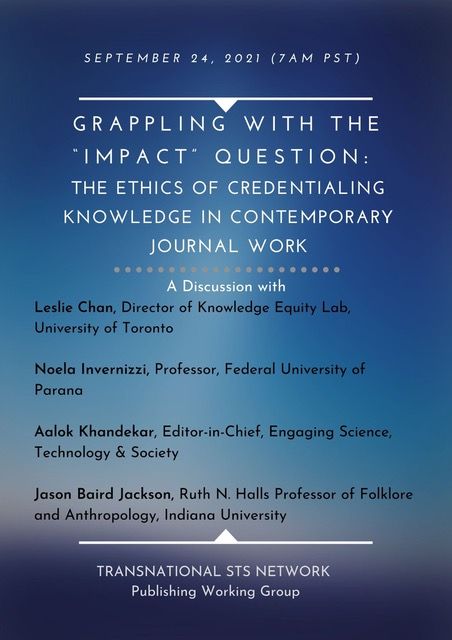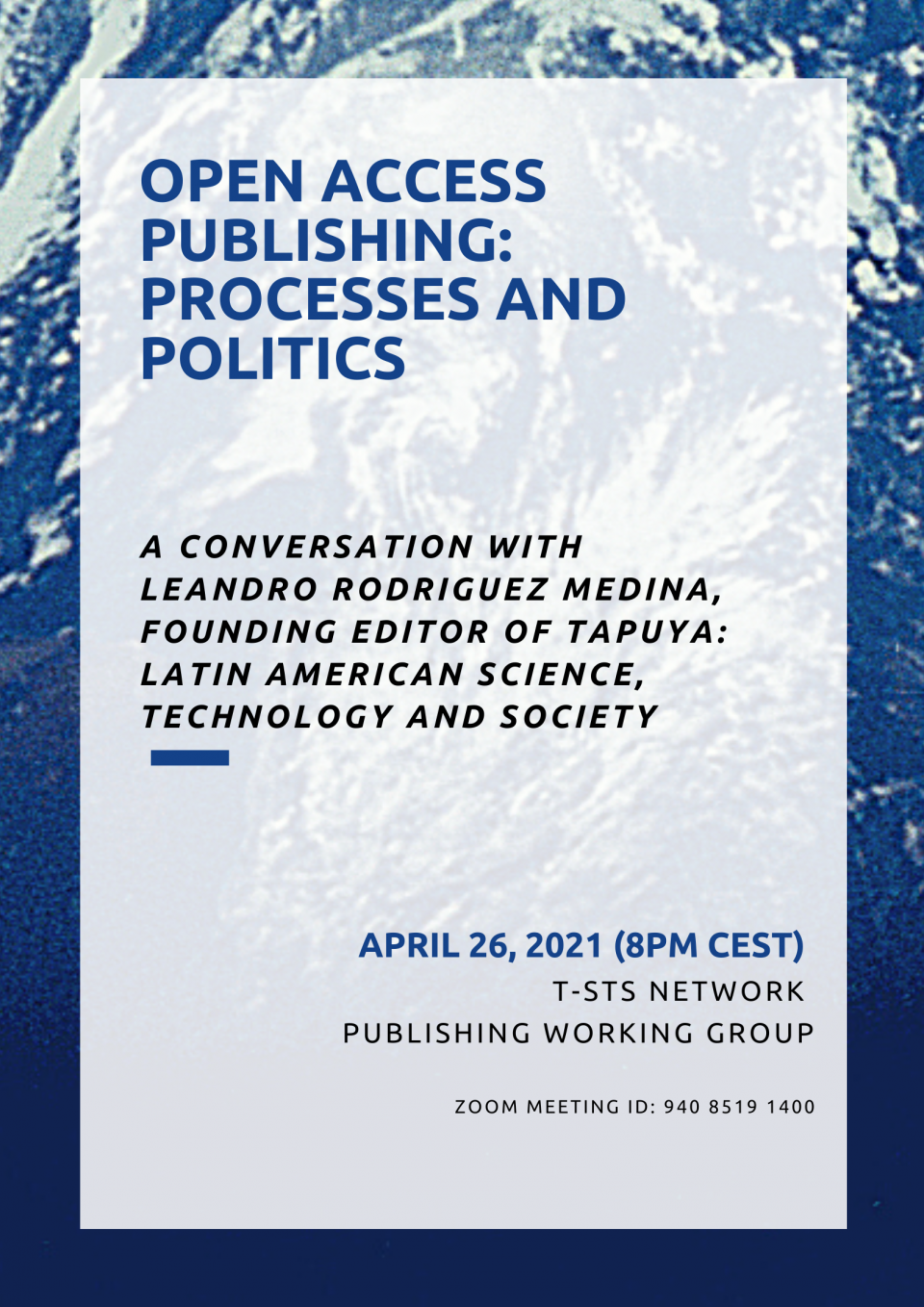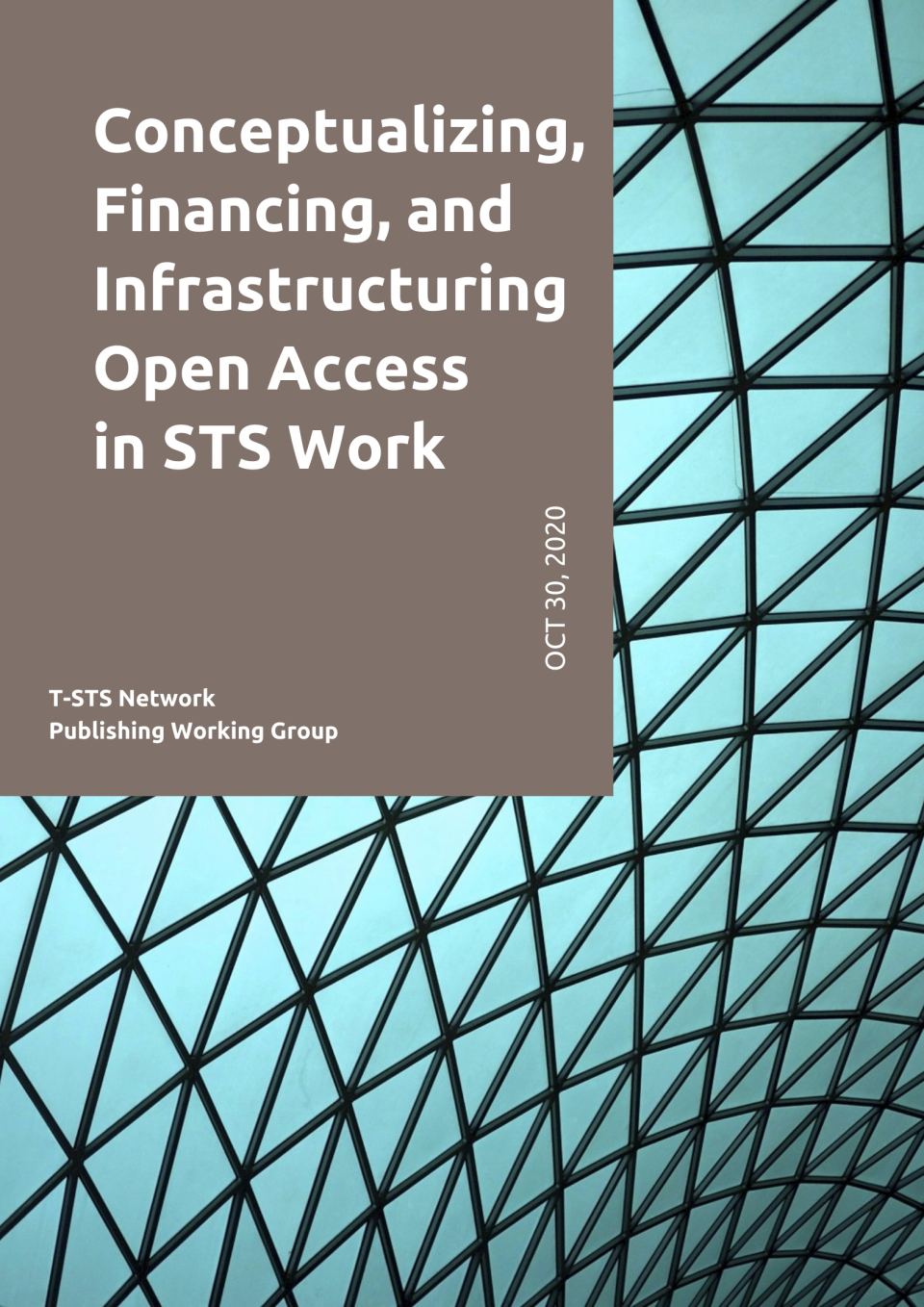
The aim of the Transnational STS Publishing Group is to strengthen the theory and practice of STS publishing through sustained dialogue and collaboration among STS editors and allies. The group brings together journal, book series, and blog editors, people developing new forms of STS publishing, and all interested in the design and politics of STS publishing. The group welcomes both experienced and emerging publishing practitioners. The group has built on discussions among STS journal editors at the 2018, 2019 and 2020 meetings of the Society for Social Studies of Science. The group holds quarterly video conference discussions addressing an array of questions. The Transnational STS Publishing Group is collaboratively convened by the Transnational STS Network and the Engaging Science, Technology and Society Editorial Collective.
If you want to be informed about events organized by the T-STS Network Publishing Working Group, join the listserv: transnational-sts@googlegroups.com
Join us at the 4S 2022 Meeting in Cholula, Mexico. More information forthcoming.
"Open STS Publishing Infrastructures" | 4S 2021 Open Panel | October 7 (1:20 to 2:50pm EDT)
Recording forthcoming

The September 24th meeting of the Transnational STS Network Publishing working group will discuss the double bind between credentialing scholarly work and pushing back against dominant paradigms of quantifying academic outputs. This burden appears to be especially acute amongst those establishing new publishing institutions in and by historically marginalized parts of the world. These groups and individuals are now leveraging new digital publishing technologies to reach global audiences. But, in these attempts to decenter, decolonize, and decentralize knowledge production, such groups continue to grapple with a pervasive paradigm and technologies of scholarly “impact”. How can journal editors and those looking to build inclusive knowledge sharing platforms navigate the increasingly privatized world of journal indexing, rankings, and governance by metrics and algorithms (c.f. Chen and Chan, 2021) for a glimpse into how data analytic providers are leveraging rankings as a part of their strategies to further extract rent and assets from the university. In this meeting, Leslie Chan, Noela Invernizzi, Aalok Khandekar, and Jason Jackson will share from decades of experiences working in and on open access scholarly publishing.

The April 26th meeting of the Transnational STS Network Publishing working group is slated to discuss the practices and politics of open access publication in STS. In this meeting, Leandro Rodriguez Medina will share the challenges and accomplishments of Tapuya: Latin American Science, Technology and Society, an open access peer-reviewed journal published in English by Routledge. The journal was launched in 2017. This conversation will begin by focusing on 1) publics and 2) peer-review. We encourage participants to read the chapters recommended below before attending the meeting, which were published in the open-access book Reassembling Scholarly Communications (MIT Press, 2020), edited by M. P. Eve & J. Gray:
-Robin de Mourat, Donato Ricci, and Bruno Latour. “How Does a Format Make a Public?”
-David Pontille and Didier Torny. “Peer Review: Readers in the Making of Scholarly Knowledge”

Across scientific fields, there are increasing expectations that publications link to source data. This rarely happens in STS publishing. In the January 22th meeting of the Transnational STS Publishing working group, we discussed why publishing source data could be valuable in STS publishing, what types of data could and should be published, the infrastructure needed, and questions about privacy, ownership, attribution and modes of reuse.

The October 30th meeting of the Transnational STS Publishing working group was slated to discuss the conceptualization, financing and infrastructuring of open access in STS work. See full description of the event here.